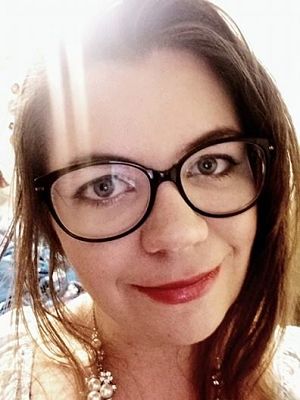Word From the Editor
“Like the mutability of social strictures in my lost and new homelands, my work embraces ambiguity and uncertainty,” Tatiana Garmendia writes about her portfolio Migrations. Garmendia’s work “wrestles with conflicting moral intuitions, with the personal and the historic.” Whether the medium is writing, painting, or even dance, the creative mind is driven to tell our passions and histories through narratives.
Our stories can be difficult, sometimes impossible, to tell. In her essay “Alone in Company,” Chelsea Bayouth reflects on the role of an artist at the end of 2018: “For me, it is to fear that every word or image is a window into public, political, and social tumult. It means you have to be more vulnerable than you or anyone in times previous has ever been.” If we continue to write, to paint, to dance, to show up for ourselves and our art every day, we might find that our work transcends ambiguity and discomfort to reveal a greater insight into ourselves, and if we are lucky, into the world.
Lunch Ticket Issue 14: Winter/Spring 2019 finds itself through narratives—difficult, painful, and emotional, they find power in their revelations and in the vulnerability of each writer and artist has put into them. At Lunch Ticket, our mission has always been to serve misrepresented and marginalized communities, and our staff of forty-six volunteers somehow manage to pull together two amazing issues twice a year. We look for work that haunts and moves us all with a social justice bend. Art is a place where people can find a middle ground and explore complex subjects. In the poetry section, Mehrnoosh Torbatnejad writes:
And the first words out of my mouth
do not buck into a shield, do not blast his ears
with refusal, not never, in my quiet defense
something un-proud: it’s not even Muslim (Can You Remove Your Necklace During Work Hours?)
From fiction stories like Devan Collins Del Conte “Again Undine” to poems like Chaun Ballard’s “Q & A” and creative nonfiction pieces like “Reflections” by Marlene Olin, this issue explores themes of identity and giving power to the voiceless. “The myths were wrong and they weren’t; they weren’t to do with her anymore anyway and they were all she had left. They weighed her down from the inside, those alloys of knowing,” Devan Collins Del Conte writes in “Again Undine.”
We are also trying to expand our platform for youth outreach. In Issue 14, we featured artist Ava Wangs, an eighteen-year-old who found inspiration for her collection “Natural and Organic” in “things I hold close to my heart, such as my childhood memories, a place or a story that carried meaning, my friends, my family, and my own identity and philosophies.” Ava shows us that narrative and stories aren’t always written but can be illustrated with a paintbrush.
Lunch Ticket is excited to announce our contest winners and finalists. Gabo Prize winner Maia Evrona translates selected poems from Abraham Sutzkever’s Poems from My Diary. Guest judge Piotr Florczyk says, “I was immediately struck by the visionary undertow of these poems, their author wearing a mask of ‘a blind seer’ and running ‘from abyss to abyss rescuing the smiles of the sacrificed.’” Evorna’s prize-winning translations appear alongside other literary works translated from Old English, Spanish, German, Russian, Italian, and Polish in our Gabo Prize and translation sections.
This issue’s Diana Woods Memorial Award in Creative Nonfiction winner, “Playing House” by Alex Myers, captivates us “with its unexpected, evocative metaphors and descriptions—its language just slightly off-kilter, as alluring and evocative as the abandoned houses that drew in the narrator and their brother,” said guest judge Alexandria Marzano-Lesnevich. “This is an essay that stayed with me.”
At Lunch Ticket, we look for stories that stay with us. As we continue to make strides towards our mission, I’m reminded of Helen Park’s protest at her church’s lack of tolerance in her creative nonfiction piece “Crabbing:” I got up, walked to the back of the room and turned around at the entrance, yearning to spot just a hint of opposition, any lick of discomfort, a slight cough or questioning tilt of the head. I waited with my hands at my sides, holding my breath and praying for something—anything—to break the surface.” As artists and writers, we often find ourselves taking a stand while others are still sitting. In the era of Kavanaugh, Muller investigations, and the endless stream of distressing news, it’s essential to remember that the work is important. Art is necessary, and it has the power to “break the surface.”

 Kori Kessler has a degree in literary theory. She just got done traveling Europe and currently attends Antioch University Los Angeles. She is editor-in-chief of Lunch Ticket and has work published in Tiferet Journal. One of these days she plans on settling down in LA with her dog, Ginsberg.
Kori Kessler has a degree in literary theory. She just got done traveling Europe and currently attends Antioch University Los Angeles. She is editor-in-chief of Lunch Ticket and has work published in Tiferet Journal. One of these days she plans on settling down in LA with her dog, Ginsberg.


